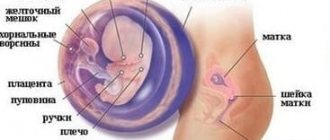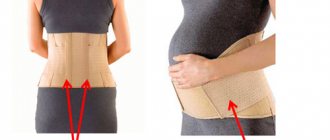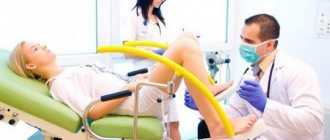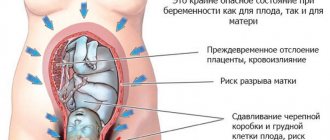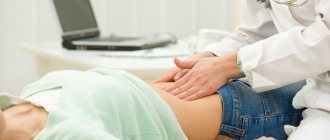Medical Consultant Gynecology Pain during and after ovulation: causes and methods of control
Ovulation is part of the female cycle, a natural process that occurs in the body. But, alas, this phenomenon does not always pass painlessly. Many women are embarrassed by discomfort during ovulation, but are they a sign of illness? Or is such pain just a variant of the norm?
- Why does the lower abdomen and ovaries tighten during ovulation?
- How does pain feel during ovulation?
Pain during ovulation, radiating to the rectum
- Headache and ovulation
- Pain during ovulation after childbirth
- Pain during ovulation after surgery
- Ovulation pain during sex
- Painful ovulation after discontinuation of oral contraceptives
- Diarrhea during ovulation
- Frequent urination during ovulation
Why Ovulation Can Be Painful
There are several gynecological reasons that explain the pain of ovulation, and they are considered completely natural phenomena:
- ruptures of blood vessels located at the base of the ruptured follicle;
- increase in estradiol levels;
- increased contractility of the fallopian tubes.
But it happens that discomfort during ovulation is a sign of various painful conditions, such as:
- mastopathy;
- varicose veins in the pelvic area;
- ovarian cancer;
- cervical cancer;
- adhesions in the pelvis;
- cyst in the cervical canal area;
- endometritis.
During ovulation, estrogen in the blood increases greatly, which is why women sometimes experience pain.
Endometriosis
This diagnosis has been talked about in recent years: endometrial cells lining the inner surface of the uterus begin to grow outside it. Because of this, pain occurs during ovulation and other unpleasant symptoms.
How to get rid of it: after diagnosis, surgical treatment is possible, in mild cases - hormonal and anti-inflammatory.
Why does the lower abdomen and ovaries tighten during ovulation?
Most women should be aware that every month an egg leaves one of the ovaries, right or left. This is precisely what causes nagging pain: as a rule, the sac in which the egg is located slightly stretches the ovary, so mild pain in one of them is normal.
In addition, during the release of the egg, a small amount of fluid comes out of the follicle, which irritates the peritoneum and leads to pain in the lower abdomen.
Small vessels in the ovarian capsule may burst, and the blood from them also irritates the peritoneum.
The pain can be reinforced by contractions of the fallopian tubes, which try to push the egg into the uterine cavity as quickly as possible.
As a teenager, I myself quite often encountered unpleasant sensations during ovulation. I can’t say that they caused me severe discomfort, but almost every cycle I felt pain and tingling in one of the ovaries for a day or two, sometimes accompanied by slight bleeding. The gynecologist I visited did not find any serious diseases of the reproductive system, but did find a slight imbalance of hormones, which manifested itself mostly in painful menstruation. The light hormonal therapy prescribed to me was able to kill two birds with one stone: it relieved pain both during menstruation and during ovulation.
Is this normal?
Moderate nagging pain from days 14 to 17 of the cycle is normal. They are physiological in nature and do not threaten the woman’s health in any way. In 90% of women, pain during ovulation is associated with natural processes, in 10% with pathologies of the reproductive system. With a high pain threshold, pain in the ovulatory phase is considered normal if:
- The pain is felt only on one side (right or left ovary). But if pain is felt on only one side for several months, this may be a symptom of problems with the ovaries.
- There are no pathological symptoms in the form of vomiting, dizziness, confusion and a feeling of unreality of what is happening. However, mild nausea is allowed (no more than 3 hours a day).
- Body temperature remains within 37 degrees. The permissible maximum temperature is 37.4 degrees.
- The presence of standard ovulation symptoms: general swelling, increased sexual desire, soreness of the mammary glands, changes in vaginal discharge (consistency of raw egg white), sometimes the release of a small amount of blood (due to endometrial detachment due to a drop in estrogen).
- Ovulation is determined by special tests.
Important! According to medical statistics, 25% of women always feel the process of ovulation.
How does pain feel during ovulation?
As a rule, in addition to pain in the lower abdomen, during ovulation a woman experiences the following symptoms:
- increased sexual desire;
- increased mucus secretion in the cervix;
- change in the color of the discharge - it may turn light pink or even reddish.
All this indicates that the cause of your pain is ovulation.
Sometimes a woman feels pain during ovulation for a reason; it can appear due to various conditions or occur together with other symptoms.
During ovulation, a woman may experience pain in the lower abdomen and increased libido.
Pain during ovulation, radiating to the rectum
If, during ovulation, abdominal pain is transmitted to the rectum, then this is a rather bad sign, which suggests that you should immediately visit a doctor. Such pain is usually associated with inflammatory processes in the pelvic area, especially often in the bladder. You may not notice the illness during normal times, but during ovulation or menstruation it may worsen.
Headache and ovulation
Sometimes pain during ovulation is quite normal, because during the period when the egg is released from the ovary, the concentration in the blood of hormones such as estrogen, LH, FSH increases greatly, a real hormonal surge occurs, which cannot but affect the woman’s condition. But there are other causes of headaches:
- disturbance of water balance in the body;
- uterine spasms;
- use of certain medications.
In any case, if the headache is so severe that it prevents you from living normally, be sure to visit a doctor.
Headaches during ovulation can be quite normal.
Pain during ovulation after childbirth
The first time after childbirth, a woman may actually experience pain during ovulation. In such a situation, it is worth getting examined by a doctor, since this symptom may indicate complications after childbirth: adhesions in the pelvis, endometriosis.
If your birth went without problems, and the doctor did not find any diseases, then you should not worry too much: most likely, the unpleasant sensations are only a consequence of hormonal postpartum changes; after a couple of cycles they will disappear without a trace.
Pain during ovulation after surgery
If you have recently undergone surgery related to the pelvic organs, then the appearance of pain during ovulation should alert you a lot, especially if this is your first cycle after surgery.
Sometimes it happens that after surgery, adhesions occur in organs. At normal times, you may not notice them at all, but during ovulation the pain appears.
Ovulation pain during sex
Abdominal pain that a woman experiences during sex during ovulation may indicate the presence of inflammatory processes. Be sure to visit a doctor who will prescribe the necessary examinations for you. If no problems are found, then such a symptom is considered a variant of the norm.
The fact is that if sexual intercourse coincides with the time the egg is released from the follicle, then it can become an additional irritant (in addition to the fluid flowing from the vesicle). That is why you should not be afraid of mild pain in the lower abdomen.
But if you feel a sharp pain that not only does not stop over time, but also gets stronger, then try to get to the doctor's office as soon as possible. This may be a symptom of the formation or even rupture of a cyst on the ovary.
Painful ovulation after discontinuation of oral contraceptives
Oral contraceptives affect the entire menstrual cycle, they suppress ovulation and thereby protect you from unwanted pregnancy. When you stop taking them, the hormonal levels in your body change greatly. The entire reproductive system learns to perform its functions again, so pain during ovulation is quite normal. You should wait a couple of months - as soon as the balance of hormones in the body is restored, all unpleasant sensations should go away.
During the first cycles after stopping OCs, pain during ovulation is quite normal.
Diarrhea during ovulation
Diarrhea during ovulation has a completely normal physiological cause. At this time, a hormonal surge occurs, which can affect all systems of the body. It is this that sometimes causes indigestion, which results in diarrhea.
Frequent urination during ovulation
Many women are bothered by frequent urination during and after ovulation. They may be associated with the onset of a disease such as cystitis. In this case, in addition to constant urges, the woman experiences:
- long-lasting cutting pain in one or both ovaries;
- cramping pain, which intensifies with cooling and stress;
- pathological discharge.
Why does cystitis occur? There are several reasons for this, and each of them can be prevented:
- weakening of the immune system;
- changes in hormonal levels;
- exacerbation of chronic diseases of the reproductive system;
- vaginal dysbiosis;
- failure to comply with personal hygiene rules;
- allergies to personal hygiene products.
Frequent urination during ovulation may be a sign of cystitis
Severe stomach pain during ovulation
The cause of such pain can be anything. If you feel severe and sharp pain, call an ambulance immediately. The likelihood that such a situation is associated with ovulation is small, and you cannot diagnose it yourself or wait until it passes. Sharp pain and severe pain in the abdomen can be associated with appendicitis, so it is better not to waste time and seek medical help.
Appendicitis - description
What does pain after ovulation mean?
Sometimes a woman experiences pain not only during ovulation, but also some time after it. Quite often this is the norm.
If you experience pain some time after ovulation, this may be due to your pregnancy. Quite often, in addition to pain, ladies also notice spotting brown discharge. This is normal and indicates that the fetus is attached to the wall of the uterus. As a rule, implantation occurs 5–9 days after ovulation.
But pain after ovulation is not always the norm. Thus, nagging pain about a week after the release of the egg can indicate pathologies such as:
- ovarian apoplexy;
- cyst rupture;
- inflammation of the appendages;
- genitourinary tract infection;
- pathologies of the cervix;
- viral or bacterial disease of the ovaries.
This is why you should definitely visit a doctor.
Sometimes after ovulation, women experience other health problems:
- thrush - as a rule, thrush occurs against the background of weakened immunity or changes in microflora. Quite often this phenomenon occurs due to pregnancy: fertilization weakens the body quite significantly. But this is not always the case. Therefore, if you notice that you have thrush after ovulation, visit a doctor: he will take smears and check whether there is a microflora disorder in your body;
- nausea – some women believe that nausea immediately after ovulation is a sign of pregnancy, but this is not the case. Toxicosis cannot begin immediately after fertilization. If you experience severe nausea after ovulation, it is better to visit a doctor, as this may be a symptom of various diseases or problems in the body;
- bloating - bloating after ovulation can be a sign of hormonal changes that are normal immediately after ovulation, as well as various gynecological diseases. But it’s still worth going to the doctor - sometimes bloating appears during an ectopic pregnancy.
Nausea after ovulation is a sign of health problems
What to do to relieve pain?
If you feel itchy and painful on the days of expected ovulation, it is advisable to visit a specialist to find out the cause of the pathology. Taking analgesic medications will help reduce discomfort at home. Among them are No-shpu and Spazmalgon. The most effective folk remedies for pain relief include:
- Calendula infusion;
- Melissa;
- Elecampane root;
- Yarrow decoction.
In case of severe pain, it is advisable to limit physical activity and monitor your condition. It is important not to ignore the symptoms that appear. It will help make the correct diagnosis.
If your stomach hurts for physiological reasons, a hot heating pad will help relieve the discomfort. It relaxes muscle spasms. In situations where the pain is due to pathological reasons, a heating pad can worsen the situation.
If the pain does not cause significant inconvenience, begins 1-2 days before ovulation and ends no later than 1-2 days after ovulation, nothing special needs to be done. You can consider yourself lucky - your individual characteristics eliminate the need for tests to determine when to expect ovulation when planning a pregnancy. You will already know this.
But if the pain is severe, it is accompanied by strange discharge from the genitals, fever, or lasts a long time or intensifies, you should definitely visit a doctor. Inflammatory changes, infections, and cystic formations on the ovaries are possible.
If severe pain is not associated with pathology, it is said to be a pronounced ovulatory syndrome. Taking a warm shower and taking painkillers of your choice will help relieve it. But if you are planning to conceive in the current cycle, you should not take analgesics before ovulation, this may not have the best effect on the ovulation process. In this case, it is better to give preference to antispasmodics, for example, No-Spe.
Modern birth control pills, oral contraceptives, also help get rid of painful ovulation warning signs.
Lack of ovulation
Sometimes it happens that ovulation does not occur during the cycle. This may happen for reasons such as:
- pregnancy and breastfeeding;
- premenopause;
- stopping taking hormonal medications;
- various diseases;
- climate change;
- intensive training;
- stressful situations;
- weight loss or gain.
A cycle without ovulation is completely normal during adolescence. For women of reproductive age, the absence of ovulation 1-2 times a year is also not a sign of disease. But how can you tell that ovulation has not occurred? This is usually indicated by the following symptoms:
- irregular periods, changes in cycle length;
- the appearance of acne in the middle of the cycle (associated with suppression of the functions of the adrenal glands and thyroid gland);
- the nature of the discharge does not change (normally, in the middle of the cycle, the discharge becomes watery);
- basal temperature does not change.
As a rule, if ovulation does not occur, then in the middle of the cycle the woman does not experience any pain, but the woman experiences premenstrual syndrome and menstruation quite painfully.
Sudden weight changes can cause a lack of ovulation
Duration of pain
Pain after ovulation, as during menstruation, is regular, but is not always felt by women to the degree of intensity where it can cause anxiety. For almost everyone, the period when monthly pain during menstruation occurs can last several days, or can be felt as a short-term discomfort lasting a few minutes.
Temperature, changes in the size of the mammary glands, pain in the middle of the cycle for many women are a way to monitor pregnancy or determine the most likely time of conceiving a child. Pregnancy is most likely to occur after ovulation. The norm of time during which ovulatory pain lasts is a very arbitrary concept. But, if for several months the sensations differ from the usual ones, it is urgent to figure out why this is happening.
How to relieve pain during ovulation and prevent complications
If pain during ovulation greatly bothers a woman, she should ask a doctor for advice. But there are several rules that are likely to help alleviate this condition:
- you should worry as little as possible before ovulation. Calmness and lack of stress can help relieve pain;
- limit the consumption of fatty and spicy foods, tea and coffee, chocolate, cabbage, and legumes. This will help reduce the load on the gastrointestinal tract;
- drink more water;
- take warm baths with aromatic herbs;
- if you are sure that you do not have infectious diseases that caused the pain, then a warm heating pad placed on your lower abdomen can help.
For pain relief, your doctor may prescribe the following medications:
- Ibuprofen;
- Indomethacin;
- Naproxen;
- Ketoprofen;
- No-shpu;
- Spazgan;
- Spasmalgon.
Prevention of illness during ovulation
To understand what needs to be done to prevent pain during ovulation, you should visit a doctor. Most likely, you will have to undergo some examinations, such as an ultrasound.
One of the prevention methods is keeping a menstrual calendar. With the help of it and special ovulation tests, you can understand on what day you can expect the release of an egg, and therefore pain. You can simply start taking painkillers a couple of days before this date.
The most effective way to prevent pain during this period is to take birth control pills. They simply block ovulation, which means they relieve pain.
If you experience pain during ovulation, you might want to start tracking it on a calendar.
When should you see a doctor?
Ovulatory syndrome should not cause significant discomfort to a woman. Normally, it manifests itself for a couple of days and does not affect performance. If you have concomitant symptoms, you should visit a gynecologist. Warning symptoms include:
- High body temperature;
- Severe nausea and vomiting;
- Acute nature of the pain;
- Difficulty with bowel movements and urination;
- Bleeding;
- Dizziness or loss of consciousness.
In order to detect deviations in time, it is necessary to carry out preventive visits to the doctor. The optimal frequency of visits is once every six months. In addition to a gynecological examination, an ultrasound examination and a test that determines the amount of sex hormones are required. To make the diagnosis easier, a woman should keep a menstrual calendar.
